In an increasingly digital world, significant inequalities in access to training and education still persist. The 3DI Virtual Reality Institute, a collaboration between UCL and Marmara, addresses these disparities by creating a virtual institute where scientists and students can meet using AI-voice avatars and VR. This initiative, originating from a virtual reality chemistry center developed during the pandemic, focuses on 3D printing. Accessible via PC or VR headsets, the institute enhances productivity, reduces costs, and offers 24/7 access for all, including multilingual AI-voice avatars, providing equal opportunities for training for students in remote or underprivileged areas.The institute features digital spaces for conferences, lectures, and poster exhibitions, with award-winning training facilities for hands-on learning in areas such as HPLC and 3D printing. Despite initial challenges, collaboration and support from the British Council enabled broad participation. The institute has trained over 700 individuals, saving time and costs, reducing carbon emissions, offering a sustainable model for global collaboration and education.Additionally, the institute extends its impact to schools through outreach programs utilising VR headsets. This innovative approach allows school children to engage with interactive, immersive learning experiences, and speak to AI avatars in virtual classrooms. By bringing cutting-edge technology to schools, the initiative fosters a deeper understanding of science and technology, inspiring the next generation of innovators. These outreach efforts have shown remarkable potential in enhancing educational engagement, particularly in under-resourced schools, by providing students with access to state-of-the-art learning tools and personalized support. This initiative not only democratises education but also sparks curiosity and passion for science among young learners, preparing them for future academic and career success.Overall, the 3DI Virtual Reality Institute stands out for its innovative use of technology to bridge educational gaps, its extensive reach and impact, and its commitment to creating equal opportunities for learning across the globe.

3rd PLACE
EDI Community Engagement Initiative of the Year Award
3DI Virtual Reality Institute
3rd PLACE EDI Community Engagement Initiative of the Year Award
University College London - United Kingdom
"AI and VR: Pioneering Equal Access in Education Across Borders"

Engage on social media
(Stephen Hilton LinkedIn page)
(hiltonlab Instagram)
(YouTube Channel)
(3DI 3D Printing LinkedIN profile)
Summary
Key People
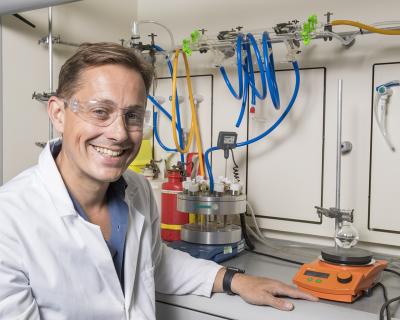
Dr Stephen Hilton
VR Project Lead
UCL School of Pharmacy,
University College London

Dr Blanka Hilton
Outerach and Widening Participation lead
Global and Lifelong Learning,
University of Kent

Professor Deepak Kalaskar
Professor and UK lead
Divsion of Surgery,
University College London

Professor Oguzhan Gunduz
Professor and Turkey Lead
Marmara University

Sema Gunduz
Project coordinator
Marmara University

Stellios Arseniyadis
Associate Professor and UK lead of the ISCC
Queen Mary University

Anant Kapdi
Professor and founder of the ISCC
ICT MUmbai
Acknowledgements
We wish to acknowldge funding from the British Council in supporting the develoipment of the the Centre and both University College London and Marmara University for support. We also wish to thank the thousands of people that have used the software and have joined us on this journey. We also wish to thank our incredible students that have supported us in this as well.
Images
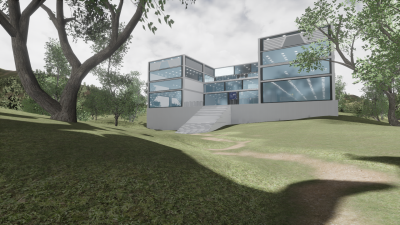
Image of the 3DI Virtual Centre
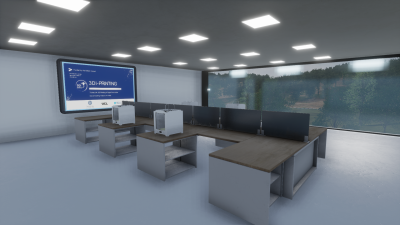
3D Printing Training Room in the centre
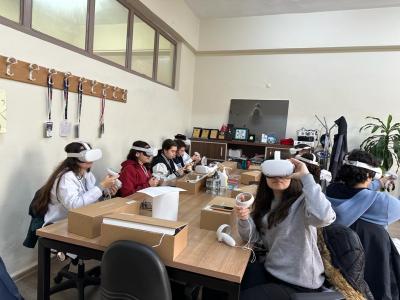
Students in Turkey using the VR Software
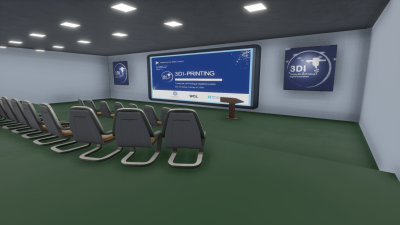
Conference facility in the centre
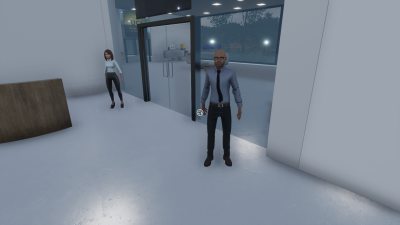
AI Intelligent Avatars in the centre
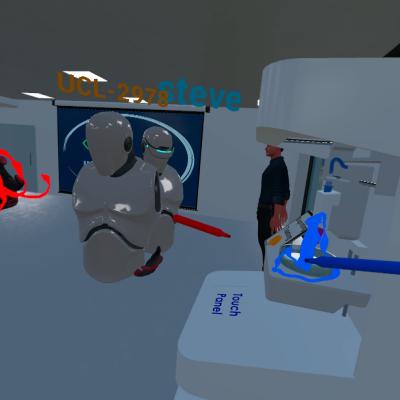
Students from the UK and Turkey working together in the centre on bioprinting
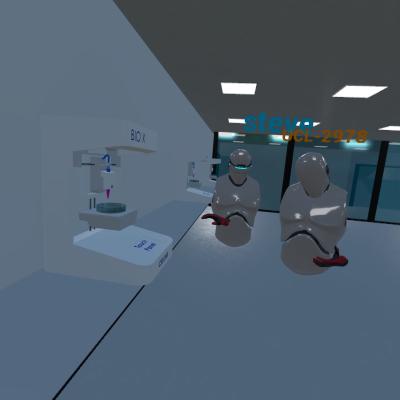
students working in the centre from Turkey and the UK
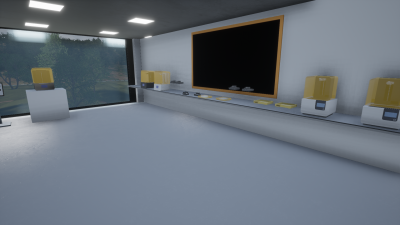
SLA 3D Printing training
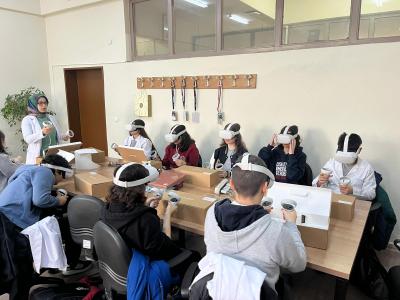
Students accessing the centre in VR in Marmara University
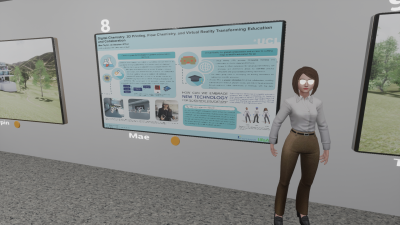
AI and Student Poster
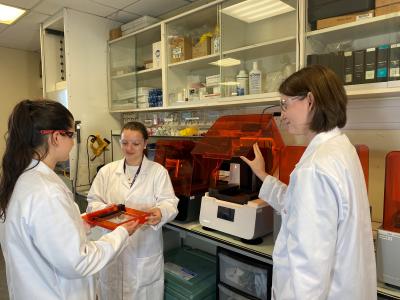
real life 3D printing training
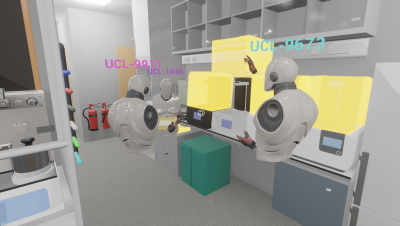
VR Based 3D printing training
IMPACT STORY
Impacting lifesThe 3DI Virtual Reality Institute has profoundly impacted the community through its innovative approach to education and training, addressing digital inequalities by creating a virtual institute where scientists, students, and educators can meet using AI-voice avatars and VR technologies. This initiative has provided high-quality training to over 700 individuals, including students, academicians, and professionals, ensuring continuous learning opportunities, particularly for those in remote or underprivileged areas. In a small primary school, 40 students experienced this firsthand. Equipped with VR headsets, these young learners explored complex scientific concepts and interacted with advanced technology. AI-voice avatars guided them in their native language, making learning accessible and engaging. This exposure ignited a passion for science and technology. Teachers observed a remarkable transformation. Students were more enthusiastic, confident, and eager to participate in their studies. The integration of the institute’s training programs into undergraduate courses at UCL and Marmara has similarly enhanced curricula, providing hands-on experience in advanced topics like HPLC and 3D printing, crucial for academic and professional development. The institute's outreach programs bring cutting-edge technology into classrooms, bridging the gap between well-resourced and under-resourced schools. It provides a platform for global collaboration, fostering a sense of community and collective progress among participants. This supportive network extends beyond the virtual institute, enabling individuals to develop new skills and enhance existing ones. The virtual nature of the institute reduces travel needs, lowering carbon emissions and supports environmental sustainability. By leveraging digital technologies, the institute offers a scalable, replicable model for global education and collaboration.
LEARNINGS
Lessons learned
Being selected as a finalist is a testament to the impact and potential of the 3DI VR Institute and VR and AI.
Key Learnings:
Adaptability is Crucial: Flexibility in adopting new tools such as VR/AI significantly enhances educational outcomes. Embracing change ensures that the initiative remains relevant and effective.
Partnerships Drive Success: Collaboration with universities, industry, and funding organizations is essential. These partnerships provide resources, insights, and expertise.
Inclusivity Enhances Impact: Utilizing multilingual AI-voice avatars broke down language barriers, making education accessible to non-native speakers and underprivileged students, significantly broadening our reach.
Sustainability Matters: Integrating sustainability into our approach via 3D printing aligned with global efforts and attracted additional support and recognition.
Leadership Advice:
Embrace Innovation: Experiment with new technologies and methodologies. Innovation is key to solving long-standing challenges.
Build Strong Networks: Establish robust partnerships across various sectors. These networks provide crucial support and open up new opportunities for growth and collaboration.
Focus on Inclusivity: Design initiatives to be inclusive. This broadens your impact and fosters a more equitable learning environment.
By embracing these learnings and focusing on innovative, inclusive, and sustainable practices, others can create impactful educational initiatives that bridge gaps and global collaboration. Focus on Inclusivity: Ensure that your initiatives are designed to be inclusive. This not only broadens your impact but also builds a more equitable learning environment.
Sustainability is Key: Incorporate sustainable practices into your initiatives. This will not only contribute to global efforts but also make your project more appealing to potential partners and supporters.
FUTURE PLANS
What's coming?The 3DI Virtual Reality Institute and the ISCC are pioneering models in digital education, with their sustainability and growth potential rooted in their digital nature. Utilizing cutting-edge VR technology and AI-voice avatars, these institutes offer scalable, adaptable infrastructure that supports continuous updates and improvements. Cloud-based services and digital-twin technology reduce needs for physical resources, lowering operational costs and environmental impact. Ongoing funding from grants and partnerships ensures financial stability and the ability to expand. Collaborations with academic institutions, industry stakeholders, and government bodies provide continuous resources and expertise, enhancing sustainability. A strong sense of community among participants fosters ongoing engagement and support. The collaborative platform encourages knowledge sharing and problem-solving, reinforcing its sustainability. Outreach and school integration programs create a pipeline of future digital users, ensuring sustained participation and growth. The virtual nature of the institute allows rapid adaptation to changing educational needs and technological advancements. New courses, training modules, and collaboration tools can be easily integrated. AI-driven, multilingual voice avatars cater to diverse linguistic and cultural needs, enhancing adaptability and inclusivity. Born out of the necessity during the COVID-19 pandemic, the institute has demonstrated its ability to respond to global challenges. Its scalable digital infrastructure supports easy expansion, accommodating more users, courses, and new fields of study. The model's focus on accessibility, inclusivity, and multilingual support ensures it can be replicated in diverse regions, particularly underserved and remote areas. By addressing universal educational challenges, the institute presents a compelling case for worldwide replication.

